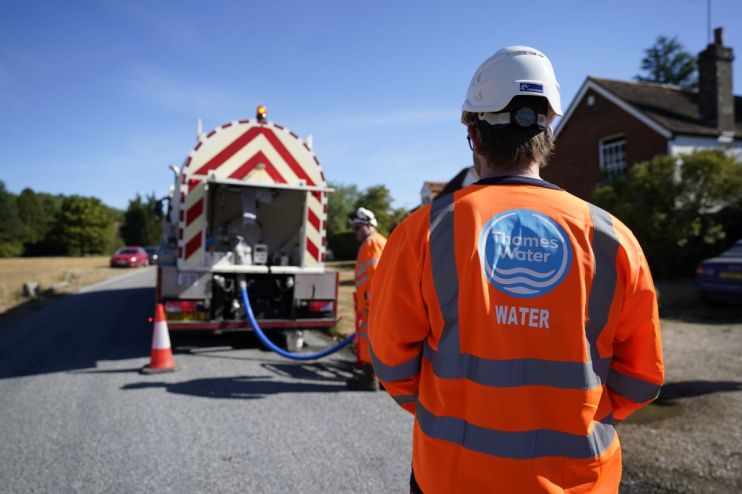Thames Water creditors in funding drive to dodge special administration

A group of Thames Water’s creditors are devising backup plans for a renewed injection of cash in a bid to prevent the firm from being effectively renationalised.
The UK’s biggest water company is struggling under an £18.7bn debt crisis, and is in talks with lenders to provide it with fresh funding.
The floundering utility firm is reportedly working with Rothschild’s financial advisors and approaching specialist infrastructure investors for the equity raise, the Financial Times (FT) reported. This is in a bid to fund investment across the water network and address its debt pile.
But separately, a group of creditors are discussing their own rescue strategy, via a restructuring of its loan repayments, which they hope would stabilise the company’s finances and deliver the necessary operational turnaround – should Thames’ own efforts fail.
The 90-strong creditors with approximately £10bn of debt at Thames’ operating company are working on their own backstop in the hope of stopping the company entering so-called ‘special administration’.
Potential options for those working with Akin lawyers and Jefferies bankers could resemble a partial debt-to-equity swap or a cash injection into Thames, the paper reported.
Creditors involved reportedly include the UK asset manager Abrdn, the US insurance firm Assured Guaranty and the debt fund Elliott Management.
The embattled water company has continued its fight for survival this summer after revealing its liquidity in June was £1.8bn, “sufficient to fund our operations for the next 11 months”, and is working on a turnaround strategy with regulator Ofwat.
Its debt burden has become more tricky to service thanks to higher interest rates, and the crisis was sparked earlier this year when shareholders vetoed plans to invest £500m.
Environment secretary Steve Reed yesterday ruled out the possibility of nationalising water firms in order to clean up pollution, and stressed that the investment needed for key upgrades to the sewage network would all come from the private sector.
But the special administration regime (SAR), a bespoke insolvency regime designed to protect key public interests, is seen by some as nationalisation in all but name – and would require shareholders to repay government funding provided, the FT said.
